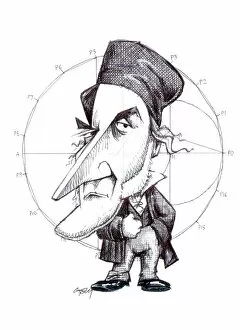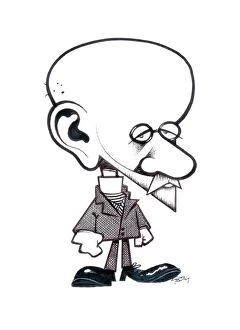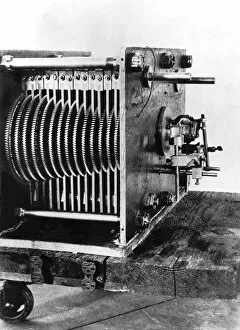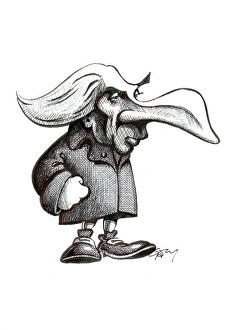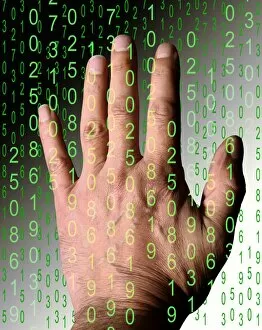Number Theory Collection
Number theory, a branch of mathematics that has fascinated scholars for centuries, delves into the intricate world of mathematical series and patterns
All Professionally Made to Order for Quick Shipping
Number theory, a branch of mathematics that has fascinated scholars for centuries, delves into the intricate world of mathematical series and patterns. Originating in the 18th century, this field has been shaped by brilliant minds like Pierre de Fermat and Leonard Euler. Pierre de Fermat, a French mathematician known for his enigmatic theorem, left behind an enduring legacy. His caricature C015 / 6714 captures his intellectual prowess and insatiable curiosity. Another luminary is Leonard Euler, depicted in caricature C015 / 6711. His contributions to the subject were vast and profound, paving the way for future discoveries. Exploring number theory often leads us to encounter captivating visual representations such as strange attractors and chaos waves. These mesmerizing artworks provide glimpses into the complexity hidden within numerical sequences. David Hilbert's caricature C015 / 6702 reminds us of his significant role in advancing number theory. His groundbreaking work on mathematical problems influenced generations of mathematicians worldwide. Karl Friedrich Gauss, portrayed humorously in caricature C015 / 6709, was instrumental in developing various concepts within number theory. His insights on prime numbers F008 / 3404 continue to shape our understanding today. Joseph Lagrange's caricature serves as a tribute to his invaluable contributions to mathematics as well as number theory's development over time. Vladimir Platonov represents Soviet mathematicians who made noteworthy strides in this field during their era. Their unique perspectives added new dimensions to the study of numbers and their properties. One cannot delve into number theory without encountering fascinating tools like mechanical gear number sieves. These ingenious devices aided mathematicians throughout history with their calculations and analysis. Intricate yet elegant, prime numbers hold a special place within number theory, and are fundamental building blocks that have captivated countless minds across generations with their mysterious nature and significance.










